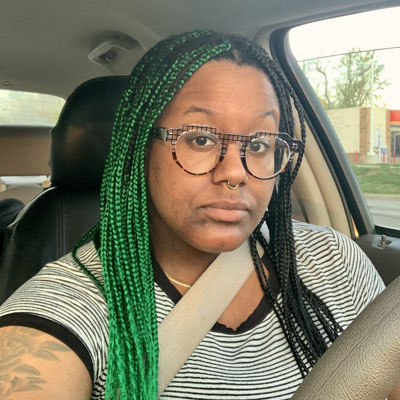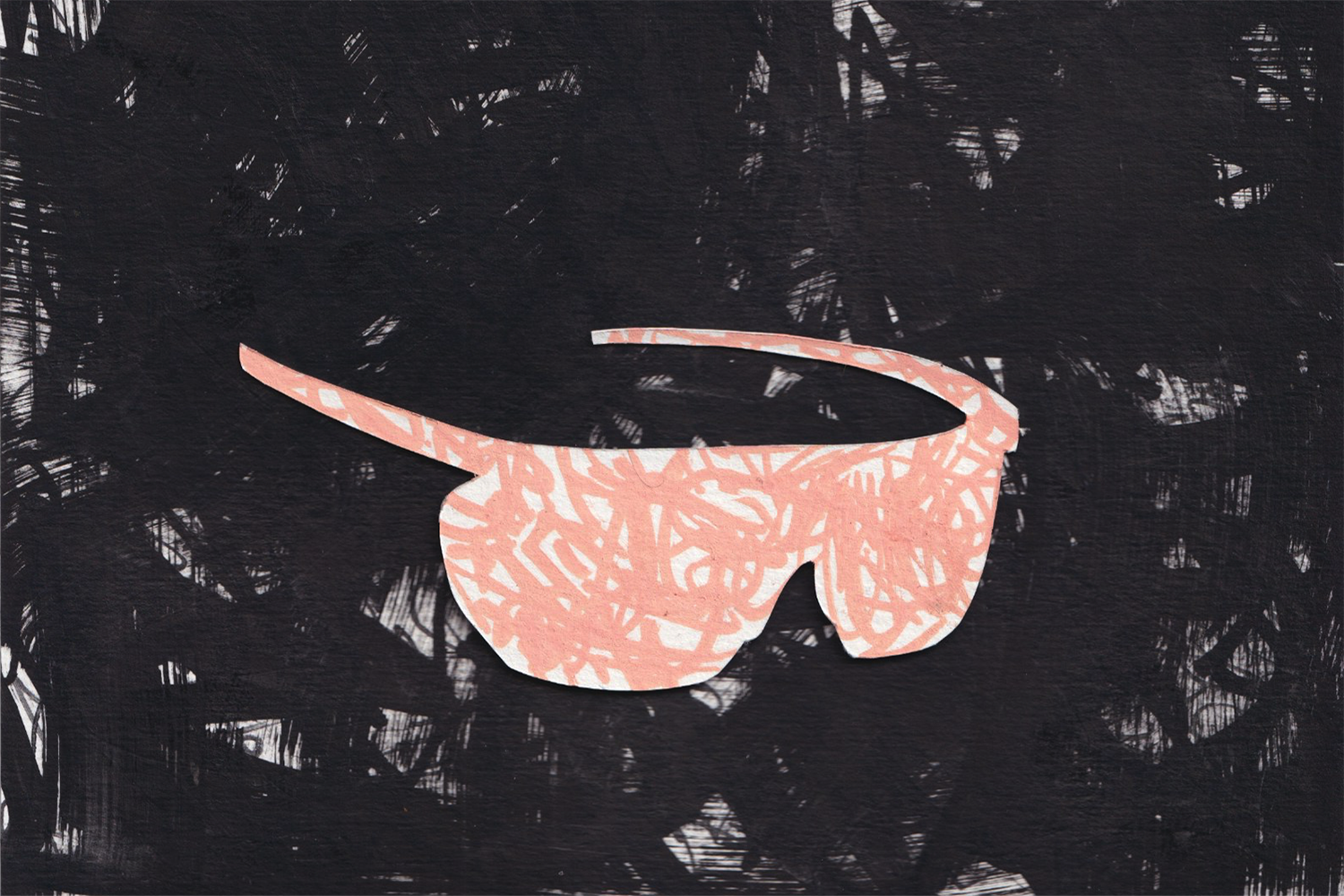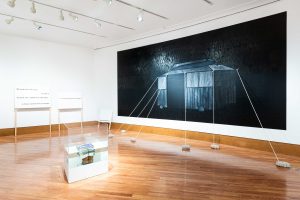Everybody loves the sunshine. Have you heard the song by Roy Ayers? It’s incredible. “My life, my life, my life, my life. In the sunshine.” If you close your eyes and listen closely, you’ll be transported to another world, a golden world filled with Black joy, a sanctuary filled with every Black nostalgic favorite thing, and “bees and things and flowers.” If I listen really close, I can smell BBQ and even feel a cool breeze. It’s the same feeling I get from Will Smith’s song, “Summertime,” or the feeling I get when I watch a Spike Lee movie, or when I get to laugh loudly with my family, or reminisce on early 2000’s BET: pure, unadulterated Black joy. A feeling like this only happens at home, with my folks (friends included), or in my Black-ass mind. Outside of those spaces, and the feeling is fleeting.
I want to soak up Black joy as much as possible. It’s my duty. I want to revel in Black joy like it’s my church. I want to wear reflective glasses with the famed Sugar Shack painting by Ernie Barnes printed on the inside of the lenses. I want to be saturated in Black joy. I want to dive deep into Girlfriends, The Parkers, A Different World, or Moesha for the hundredth time. I want to talk about who’s more Black famous, who’s in my hip-hop top five, or why it’s the time for me to invest in Air Maxes. I want to watch Snowfall on repeat, or listen to my mom rap every line of “Fuck the Police,” by N.W.A. or quote lines from House Party. I don’t want to be reminded of all the potential ways the world is trying to kill me, or people who look like me. When allies or well-meaning whites ask if I’m “okay” after a Black person dies at the hands of police, the joy fades. I can’t hear the music anymore. Instead, I hear the cries of Black mothers who’ve lost their children. I don’t want to be reminded of what the world wants us to know, that Black lives are expendable. (I mean, we’re not, but for some reason, the world can’t get over the necessity of Blackness. To everything. I mean, Blackness is essential to everyone. Even the whitest, most sheltered, suburban kid.) You all need us, but we just don’t get the space to stay in our joy. There’s always another video. Always another murder to sober us back to a country that only considered each of us three fifths of a person.
At this point, I don’t want to talk to non-Black people about racism. I’m finally comfortable saying it out loud. I don’t want to talk about it anymore. I don’t have any more clever ways to explain why white supremacy is terrible or help white people understand why the phrase “Black Lives Matter” is important. Black pain is contorted, perverted, and put on display for the average consumer – just like anything else Black. Everyone wants to know, “how does it make you feel?”
Everywhere I look, someone’s trying to remind me that I’m Black and therefore I must feel some sort of pain.
Funny, because that’s the opposite of what the medical community largely believes. Let me not get lost down the avenues of racism. These side streets keep popping up like pop-ups on a website. Where’s my racism pop-up blocker? Or my white ally pop-up blocker?
I’m inside, still “quarantining,” or as I like to call it, “embracing my new introverted lifestyle.” Like everyone else, I find myself scrolling on Instagram. It’s the new way to see what people are up to. Every time a cop kills a Black person, I find myself opening the app to see what others are saying. It’s basically like re-traumatizing myself all over again. As if the murders weren’t traumatizing enough. Scrolling through reposts of whatever video, photos to pair with #blacklivesmatter, and white people telling other white people how to reckon with their own internalized racism. Everyone has a take. It’s exhausting.
I just don’t give a shit anymore about how white people process this trauma. I don’t have the space for anyone else’s feelings. I’m tired of sharing how I’m feeling with random white people. Every time a Black person is murdered by police, or by vigilantes, there’s someone in my DMs asking if I’m okay. I don’t think any of the inquiries come from a negative place, but it’s fucking awkward. It’s like I’m expected to be in shambles. Like every time this happens, there’s no possible way that I could be okay. I do believe Black folks feel a collective hurt when tragedies like this happen, but I’m also usually coping very well (maybe from sustained generational trauma), so it’s awkward when someone is probably expecting for me to be broken down. I don’t even like posting about it anymore. I don’t want to talk to white people about race anymore. I don’t want the pity party.
Last summer, I benefited from white guilt. It was great to have gifts like plants, sweets, and all kinds of things dropped at my door. I loved it. People shared my work, booked my services, and even sent money. At the time, being on the receiving end felt like a sort of reparations. Folks wanted to give, and I was ready to receive. Now, I’m left with countless white people that I don’t know following me on social media. Watching my stories, eating up the work I do. But do they see me, or does their white guilt cause them to follow me to consume my work, but feel sorry for me? Am I even a person to them, or just a charity to donate to? Do they view all non-celebrity Blacks with pity? Like, “I’m so sorry your family will never have the generational wealth that mine has, here’s $50!”
I didn’t even want to write about this, but I can’t escape it. I feel fine in my own Black bubble. I used to feel like I was inhibiting my creativity by diving deep into scripted shows like Snowfall, The Wire, Black Dynamite (the Adult Swim cartoon), or Blackish. While each show is wildly different, they each provide an escape. Now, each show deals with the reality of white supremacy: Snowfall dealing with the infancy of the crack epidemic and the government literally flooding our communities with drugs in the early 1980s, The Wire dealing with drugs, crime, and institutional racism in the early 2000s, Black Dynamite using blaxploitation to deal with and fight white supremacy, and Blackish focusing on how to raise an authentically Black family within the white gaze in modern day America. (Btw: everything Black is authentically Black. Period.) It turns out, each piece of Blackness, whether it be a TV show, an album, a pair of Nikes, or anything Black, serve as pieces of my personal sanctuary. A safe space to retreat to after the wear and tear of white supremacy. I need these things. All Black folks need a safe space to retreat to.
Everywhere I look, I want people to know that I am Black, therefore I revel in the joy that is my Blackness. And that I don’t give a damn about white guilt.
The type of joy that my great-grandmother felt when she enrolled at Spelman. The type of joy that my mom feels when she hugs her children. The type of joy I feel when I look in the mirror.
With the country engrossed in vaccine choices, fantasizing about rushing back to a normal that we’ll never have again, I know that in either world my Blackness is at risk. But I can’t live in fear, I have to do what’s best for me. Right now, that’s staying home and surrounding myself in Blackity-Blackness. My personal heaven. There’s nothing else that’s going to save me. Especially not white guilt.
Featured image: An image of peach colored glasses on a black background created from cut paper and acrylic paint. Both the background and the glasses have a scribble-like texture. Image created by Damiane Nickles.

Ariana Beedie writes and curates art in many different forms. Ariana, also known as Ari Attack is a freelance journalist, audio producer, community leader and facilitator. She co-founded Face A Face Collective, a local arts publication dedicated to promoting marginalized voices in Indiana. She’s contributed to projects for AFROPUNK, Sidepiece Magazine, WFYI and Indianapolis Contemporary. She co-founded Hoy Polloy Art Gallery on Indianapolis’s near east side. She also co-founded WooGrl Fest, the first all womxn’s music festival in Indianapolis. Ariana also reads tarot and founded Naptown Tarot Club. Find her online at @ariattack on Instagram and support her work on Patreon.



